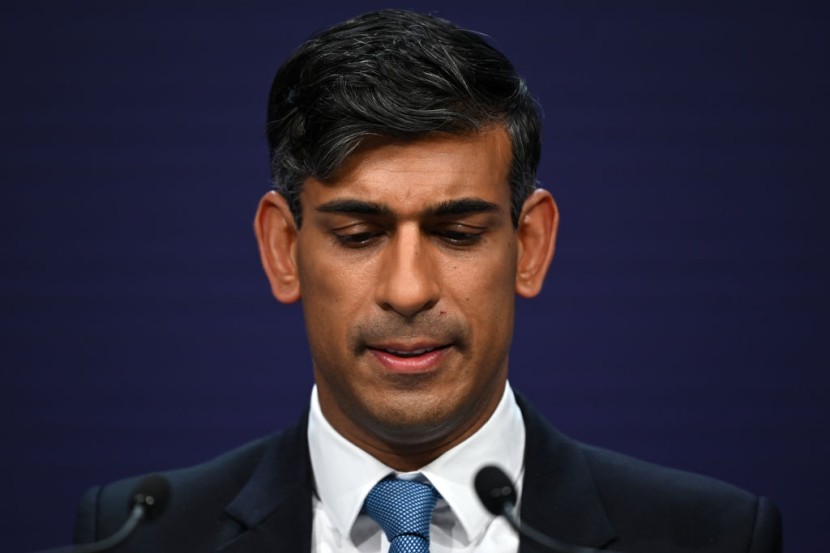British Prime Minister Rishi Sunak has allowed a pro-Palestine march to take place in London on Armistice Day but still called the event "disrespectful" and warned that it could result in chaos.
The situation comes after a Downing Street meeting with Metropolitan Police Commissioner Mark Rowley on Wednesday afternoon. Hours prior, the premier said that he would hold the law enforcement official personally "accountable" if the march on Saturday continued and caused a disruption of official events that marked the end of World War I.
Pro-Palestine March in London on Armistice Day

The political discussions regarding the march have been going on for several days, resulting in outrage in parts of the media. These include the right-leaning Daily Mail newspaper and Sunak himself said last week that planning protests on Armistice Day was "provocative and disrespectful."
The British prime minister also said that there was a clear and present risk that the Cenotaph and other war memorials could be "desecrated." On the other hand, Rowley argued that a balance needs to be met between risks and the legal right to protest, as per Bloomberg.
He added that the pro-Palestine march would only be banned as a "last resort" and that law enforcement personnel would do everything they can to prevent any form of disruption. Sunak's Conservative government has already faced criticism that its rhetoric has only worked to ratchet up public concern about the planned march, raising its profile and potentially leading to more tension.
Previously, Home Secretary Suella Braverman branded the protests, which have been seen in London and other cities globally every Saturday since the Israel-Hamas conflict began, as "hate marches."
Organizers of the pro-Palestine march on Armistice Day have made it clear for several days that the route demonstrators would take will avoid the Cenotaph and start later than official events. Supporters have also argued that Remembrance Sunday is typically more observed in the United Kingdom.
Raising Concerns of Potential Disruption
The Saturday march has been planned as tens of thousands of people have joined previous protests to denounce the rising civilian death toll in Gaza. This comes as Israel continues its bombardment of the region in response to the Hamas militant group's attacks last month, according to the New York Times.
Rowley added that laws created by Parliament are clear, noting that there is no absolute power to ban protest. He said that the reason there is an independent police service is to ensure that among debate, opinion, emotion, and conflict, they stand in the center and focus simply on the law and the facts that exist.
The concerns come as most people who attended previous protests have been relatively peaceful. However, there were some fringe elements to the demonstrations and police said that more than 169 people have been arrested for a range of offenses, including racially motivated public offenses, violence, and assaulting police officers.
Health Secretary Steve Barclay is among those who insist that the rally will be "provocative" and noted that there would be ongoing discussions about the planned march. He said that there is a legal threshold and that Rowley believes that the threshold has not been met, according to The Independent.








